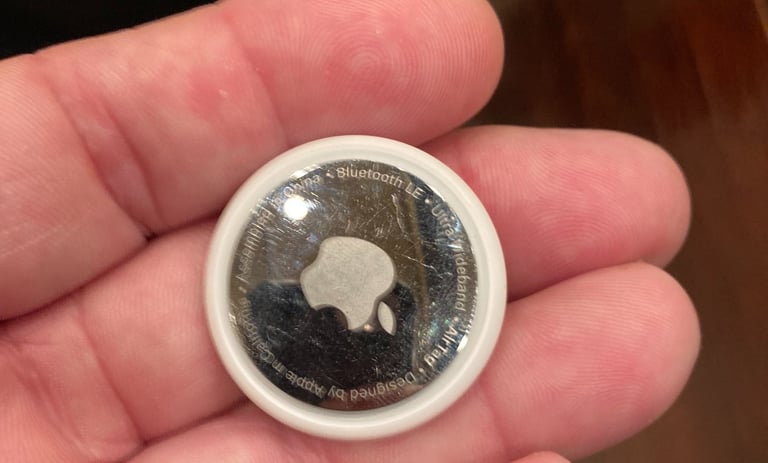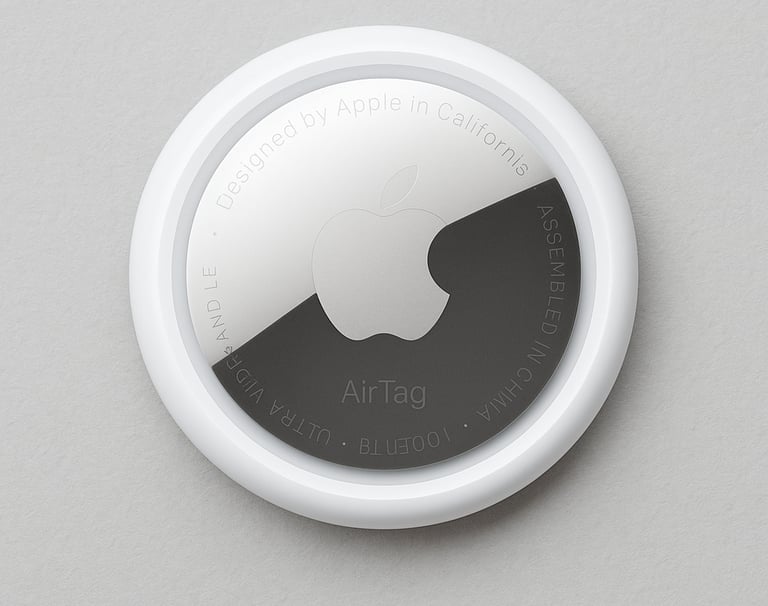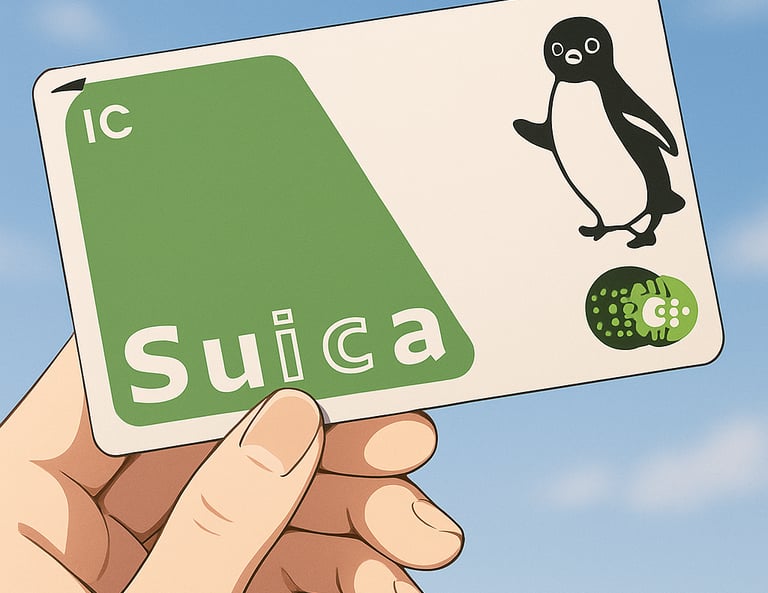The Honest City
Lessons From a Lost Suica
JAPAN
10/9/20254 min read
I lost two things in Japan this year — an Apple AirTag and a Suica card — and only one came back.
Actually, it was my daughter who lost the AirTag during a family trip to Tokyo Disney. I’ve become something of an Apple AirTag evangelist in recent years — as I get older, I tend to tuck them into nearly everything I own. My daughter seems to have inherited my tech nerdiness; she attaches AirTags to her bags, keychains, and even pencil cases.
When she returned to our hotel room that evening, she realized her AirTag was missing from her backpack. Thankfully, Apple’s Find My network is a marvel of quiet technology. Even if your AirTag is lost somewhere — say, left on a bus — any nearby iPhone, iPad, or Mac can detect it anonymously and update its location. Within minutes, we saw it had been found by the nighttime cleaning crew and was now sitting safely at Disney’s lost and found.
That called for a little Tolkien-style quest. After a snack and a good night’s sleep, we woke early, skipped breakfast, and hopped on the Disney Resort Line — a cheerful monorail looping between the hotels and the parks. It’s wonderfully reminiscent of the classic monorails back in the States.
When we arrived at lost and found, the staff — patient, polite, and smiling even at our jet-lagged enthusiasm — brought out a tray of identical AirTags they’d collected that night. After confirming the ID on her phone, my daughter reclaimed hers. Mission accomplished. We made it back in time for a late breakfast and my much-needed oatmeal. Life was good.
The Suica That Didn’t Return
Six months later, I wasn’t so lucky.
One humid afternoon, I dropped my Suica transit card on the Number 6 bus to Ōmori Station — or maybe it slipped out near the taiyaki stand when I pulled out my phone. Either way, it was gone. I had just reloaded it with ¥6,000 (about forty dollars), not a huge sum but enough to make me sigh.
I stopped by the local kōban (police box) to see if anyone had turned it in. No luck. The next day I checked the bus depot, where a kind station attendant suggested I “keep trying.” But I knew it was gone for good. I hoped, at least, that someone had found it and treated themselves to a taiyaki — better that than lying forgotten between bus seats, circling the Den’enchōfu uplands forever.
Two lost items, two different outcomes — and together they revealed something subtle about how Japan’s famous honesty actually works.
The Language of Lost Things
The Japanese people are, in my experience, among the kindest and most patient souls on earth. (Except perhaps the driver of the Number 12 bus to Den’enchōfu — I’m pretty sure he doesn’t like me.)
In Japan, honesty isn’t just a moral virtue; it’s a kind of social choreography. When something identifiable — like an AirTag — is found, it “speaks.” It declares, I belong to someone. That signal activates a cultural reflex: the finder turns it in, the clerk logs it, and the police will store it for months if needed. It’s all part of a national ritual of restoring order to the world.
But a Suica card? It’s silent. Anonymous. To most people, it’s just a lucky find — a small, ownerless token. And in that quiet, obligation fades.
Trust as a Public Design
Japan’s honesty flourishes where systems support it. At Disney, in train stations, or department stores, the process is clear: there are lost-and-found counters, police boxes, and tidy forms to fill out. Each of these steps says, this is how we do things here.
But in unstructured spaces — a bus, a park, or a quiet street — that ritual softens. It’s not that people suddenly become dishonest; it’s that the framework that sustains honesty becomes less visible.
In that way, honesty here is less about individual virtue and more about context — about the invisible infrastructure that shapes behavior.
The Law of Found Things
Japan even has a Lost Property Law (遺失物法, Ishitsubutsu-hō). It requires that if you find something — a wallet, a phone, even cash — you must take it to the police. The finder is entitled to a small reward (usually five to twenty percent), and if no one claims it after three months, it legally becomes yours.
It’s a formal, almost ceremonial process. Honesty isn’t just encouraged — it’s codified into civic life. Even found money comes with paperwork.
The Gaze of Others
Culturally, Japan is a society of the public gaze. People rarely behave as if unseen — because, in a way, they never are. The watchful eye of the community is soft but constant.
Pocketing a few coins on a sidewalk wouldn’t bring legal punishment, but it would bring haji — shame. And in Japan, that’s a far more powerful deterrent than fear. People turn things in not out of fear of authority, but out of respect for the social harmony that makes daily life here feel so remarkably safe.
The Quiet Contract
In the end, I’ve come to see Japanese honesty as a kind of quiet social contract. If I turn in something lost, I trust that someone else will do the same for me when my turn comes — whether it’s a wallet, a ticket, or a favorite doll. Each act of returning keeps that shared faith alive, a small promise that the world still makes sense.
Once, in Hakodate, I saw a bicycle frozen in snow. Each day I passed it, more of it reemerged as the ice melted. By the end of the week, it was completely free — yet it remained there, untouched. When I asked about it, a local smiled and said it was waiting for its owner, like Hachikō.
When I think of my missing Suica, I don’t feel disappointment. Instead, it reminds me that honesty — like any virtue — depends on the web that holds it. Where the system hums, honesty shines. Where it’s quiet, the world becomes gently human again.
If You Go
Lost Items in Japan
Always check the nearest kōban (police box) or the official JR East Lost & Found counters. Most stations forward items within a few days.
Tip: If your Suica is registered through the Suica App or Apple Wallet, you can recover its balance remotely — yet another small reflection of Japan’s thoughtful, trust-based design






